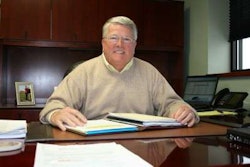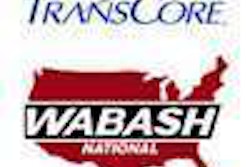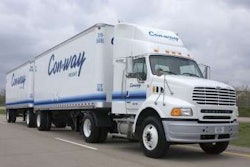Fleet execs put today’s slump into perspective
Customers are demanding lower costs and better service. Competitors are cutting rates. Freight volumes remain very weak. And fuel prices have stopped dropping. It’s enough to make a fleet executive pull his hair out. That’s how Doug Sandvig described his feelings during a speech last month at Innovative Computing Corp.’s annual user conference in Nashville.
“Every year there is an issue,” said Sandvig, president of Fort Dodge, Iowa-based Smithway Motor Express (SMX). “Last year was fuel. This year it’s the economy. Trucking changes, and today is no different. Life is full of surprises.”
But Sandvig recently discovered a way to view the present state of affairs after reading “The Blind Watchmaker” by Richard Dawkins. In the book, Dawkins offers an explanation of – and argument for – the theory of evolution by means of natural selection.
After reading the book, Sandvig searched for ways to apply the same argument to the business world. In the natural world, there is no equilibrium, and Sandvig said the same is true in business. Customers are your food; predators are your costs; and the parasites are freight brokers.
A similar metaphor that appeals to Sandvig comes from a scene in Lewis Carroll’s classic, “Through the Looking-Glass.” When Alice in Wonderland meets a living chess piece called the Red Queen, the two run together, but their surroundings don’t change. The Queen tells Alice that to get anywhere else, she must run twice as fast. Business follows this principle, Sandvig said: Only continuing development allows a company to maintain its fitness relative to others, and the only option in today’s environment is to keep running as fast as possible.
While you must focus on being the fittest company possible, that doesn’t mean you have to be the best company in the best industry, Sandvig said. Rather, it means that given your present circumstances, you must find and implement small changes that allow you to become the best company possible.
To become the fittest company, Sandvig believes you have to be low-cost. If you are low-cost, the competition will be reacting to you rather than you reacting to the competition.
At the Innovative Computing conference, a panel of fleet executives discussed the cost-cutting measures they are taking to stay competitive. Deon Troester, chief financial officer of Lincoln, Neb.-based Crete Carrier Corp., said that nearly all costs are variable in this industry, and with variable costs, you don’t have many options.
Reducing deadhead mileage should take first priority, Troester said. A lack of freight doesn’t mean your deadhead miles have to go up, but it does mean you have to work harder to keep them low.
The panel agreed that other mandatory steps include cutting truck speeds, buying auxiliary power units and vigilantly monitoring drivers’ use of APUs and their compliance with fuel and routing instructions.
The panel also agreed that cutting driver wages should be a last resort; if your fleet and drivers aren’t being pushed to maximum utilization, park them. “The last thing you want is to have drivers with 1,200 miles per week,” said Robert Kaferle, vice president of operations for Nationwide Express, a 175-truck fleet based in Shelbyville, Tenn.
Fleets can make many small changes by leveraging technology to monitor performance and by maintaining accountability over their drivers and fleet managers. Crete has created new driver scorecards to review driver performance for each trip the moment a load is delivered. Managers pay special attention to idle time and out-of-route miles, Troester said.
In summary, the panel said the traits that make their companies fit to survive the random changes of today’s business climate are the processes they have put in place to create discipline and accountability for cost, performance and safety.
“The economy is not going to kill your company,” Sandvig said. “Your competitors will.”












